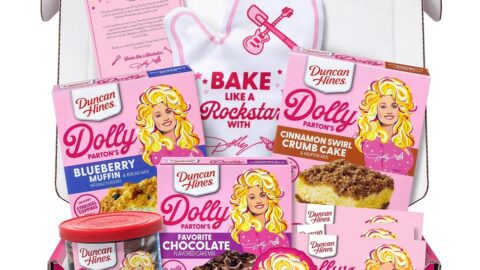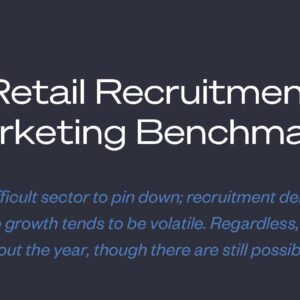Karissa Bodnar, Founder and CEO of clean beauty brand and DTC success story Thrive Causemetics, grew up in a small town in rural Washington state. She lived off a dirt road where neighbors were few and far between, there was no cable and the internet was sporadic. Not exactly the kind of place one imagines as the breeding ground for a beauty powerhouse, and yet according to Bodnar it was the perfect set of conditions to shape her into the successful businesswoman she’s become today.
“I grew up in a really entrepreneurial small town of 5,000 people,” Bodnar recounted in an interview with Retail TouchPoints. “I was surrounded by local farmers where if you wanted corn, you were either growing it yourself or buying it from your friend down the street. It was such a great way to grow up; it really helped me develop a work ethic. If I wanted that $60 Chanel bronzer that I’d seen in Allure, I had to work an entire summer. I started making my own products when I was probably 10 years old, and by middle school and high school I was making my own lipsticks and shampoo.”
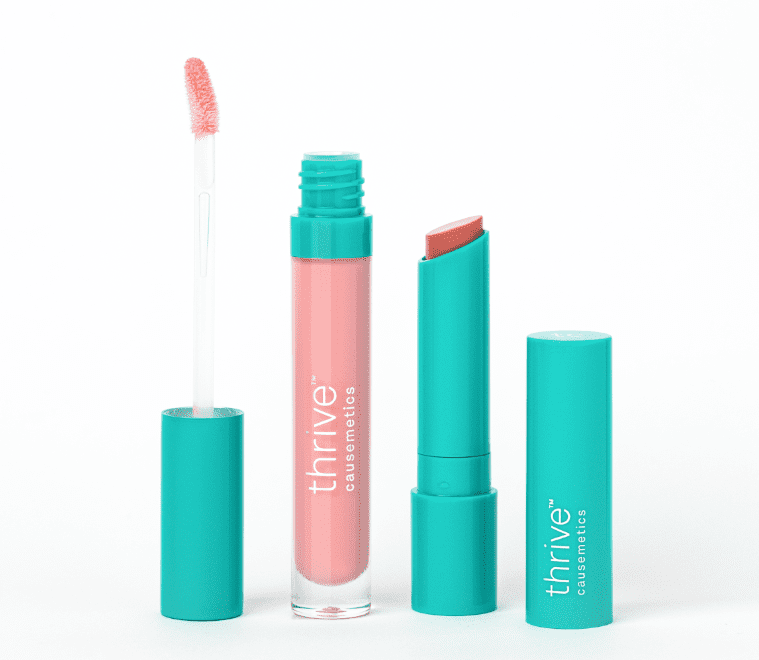
But Bodnar wanted much more than just nice shampoo and bronzer; she wanted to make her mark on the word, an ambition that shifted in tenor after a tragic loss in her twenties. Now Bodnar has parlayed her lifelong passion for beauty into a brand with purpose and a thriving (pun intended, yet also true) business. As one might expect given her brand and background, Bodnar is incredibly passionate and thoughtful about every aspect of her business, all the way down to Thrive’s signature turquoise branding, chosen because it’s a color that’s “scientifically proven to evoke a feeling of joy,” she said.
Since its inception in 2016, Thrive Causemetics has donated $135 million in products to more than 500 charities. Bodnar shared her path to that success with RTP, discussing why remaining a DTC-only, privately held company is central to achieving both her commercial and philanthropic aims.
Advertisement
Retail TouchPoints (RTP): So can you tell us about your path to founding Thrive Causemetics?
Karissa Bodnar: It was really driven by this idea that beauty is a vehicle for confidence. Like so many young girls, I had a lot of insecurities, and beauty was a way for me to [overcome that]. Then when I was about 13, I found out that if you were a makeup artist, you got free makeup, and I was like, “That’s it; that’s what I’m going to do.” I was a makeup artist from 18 years old, and I still am today. It was part of how I paid for college. I was making $11 bucks at Sephora — it was the best job.
I wanted to create products, but I didn’t really know what that meant or how I was going to do it, so I was really privileged to get a job at Clarisonic when it was a startup. I got to work with Dr. Robb, one of the co-founders, to create formulations, and then the engineers. Then the company was sold to L’Oréal, and I was fortunate enough to meet Carol Hamilton, who took me under her wing and mentored me and gave me the opportunity to develop products [and] to travel to Paris. I’m a kid from the sticks, so being able to go to Paris, all expenses paid at 22 years old, I felt like I’d made it.
My plan was to climb the corporate ladder, but then a dear friend of mine, Kristy, was diagnosed with cancer while doing mission work in Chile. When you’re 22, 23 years old, you think, “Oh this is just a bump in the road.” I had this misconception that cancer didn’t really touch a lot of young lives, which I know now is very wrong, but nine months later she passed away. I remember sitting at her funeral and thinking about how she was just 24 years old, but she had had so much impact. While I was climbing the corporate ladder, she was thinking about how she could make a difference in the world.
About a month after she passed away, I had this idea of creating a beauty brand that was about making a larger impact and was bigger than beauty. The central idea was this intention, that for every product purchased, one would be donated, and the products would have really game-changing clean formulas. “Clean” is an ambiguous term, that’s why we have thousands of ingredients on our prohibited ingredient list, but at its core [it’s products that are] paraben-free, sulfate-free, latex-free and vegan.
I started with one product — false lashes and adhesive that work whether you have lashes or not, which is very important for people who have alopecia or cancer. Since starting the business, we’ve supported over 500 charities, but 10 years ago I couldn’t find a charity, so I was going to people one-on-one to donate 1,000 pairs [of false lashes]. It was one of the best things I could have done, because those were the people who carried me through those first three years when we had almost no revenue. I was working a full-time job just to fund everything, and those people kept telling me, “The world needs you to exist; you cannot quit.” It’s what kept me going.
RTP: Why have you decided to keep the business 100% DTC?
Bodnar: In the beginning I tried [to sell in stores], but I couldn’t get a retailer to carry our brand. I thought, having worked at Sephora, why wouldn’t they want to carry us? Instead, it was like, “You’re 24 years old. Do you have an adult with you?” But now it’s definitely a choice. For example, we don’t want to be on Amazon. Anything [of ours] on Amazon is counterfeit — we actually took down something like 50 resellers last week.
We want to be 100% direct to consumer because we want to control the experience for our community. We’re not some big venture-backed, private equity-backed company; we’re an independent, woman-owned, privately held company, and that’s my intention for the future of the business.
We did do one limited-time, in-store-only partnership with Ulta from December 2019 to March 2020. It a first of its kind, and it was very successful for both Ulta and Thrive, but outside of that we’re sold exclusively on ThriveCausemetics.com. Now we’ve got two brands sold there — Thrive Causemetics and Bigger than Beauty skincare.
We’re very focused on continuing to scale the business both in the U.S. as well as Canada and all of North America. And we’re planning to launch internationally in the next couple of years, but again, always through that lens of long-term growth. We are playing an infinite game here. I am not building this company to sell it. I’m building it to make an impact and to create incredible products that really change the game in the industry, and to take great care of our employees and giving partners. However long it takes us to take the brand global, I’m okay with, because I want the long-term health of the business to always come first.
RTP: When you started building Thrive back in 2013, both clean beauty and cause-based brands were much less common. Now that mission-based brands are more mainstream, how are you differentiating?
Bodnar: I love that there are more people doing impact-focused brands. I really believe that if your cause is authentic, it doesn’t matter what other people are doing, and you can actually join together to make a larger impact. So I don’t really care about differentiating, I just care about maintaining the authenticity of what we’re doing.
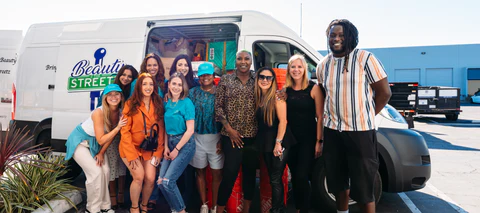
I do think what makes us different is the fact that our causes are all driven by our community, both our internal employees and our customers. We started with one cause, cancer, but now we have eight giving pillars, and under that umbrella there have been over 500 charities that we’ve supported. That’s all driven by our community; customers can literally nominate a giving partner.
I give to heal the brokenness in me, and I’m always asking our employees what cause they feel most connected to right now. The more that we do that, the more we’re going to continue to make an impact, because if you’re doing it from your heart, you’re going win every time. Whether your revenue is up and down, you can’t always control that, but you can control how you show up, and being connected to your cause is a big part of it.
RTP: That phrase, “whether revenue is up or down,” isn’t necessarily something a public company could say. Is that part of why you’re so set on keeping the company privately funded?
Bodnar: Yes, and you can quote me on this — I can count on one hand the number of investors that really care about impact. There are a lot of people focused on maximizing profits and, don’t get me wrong, I’m very driven by profitability. But that’s mostly because if I wake up one day and there’s been a tragedy in the world, like for example with COVID, we donated 1 million meals in a matter of seconds because we were able to galvanize our community and donate 100% of profits from one day’s sales.
When Breonna Taylor was killed we got in touch with her family and the University of Louisville, which is where she intended to become a nurse, and we launched the Breonna Taylor Endowment Foundation. I don’t want to explain that to Wall Street, because quite frankly, I’m so busy trying to make an impact that I don’t really care what an investor thinks about it. I know my commercial strategy, and I don’t need to explain that to anybody.
RTP: So what is your commercial strategy looking forward?
Bodnar: It’s really about expanding the product portfolio and continuing to change the game in what we’re coming out with. The world doesn’t need another lipstick or another lip gloss, but, for example, part of why our Sheer Strength Lip Gloss is so successful is because it has real clinical benefits. It’s a lip-plumping treatment to help reverse fine lines and wrinkles and also plump from within. We’re developing our formulas from scratch in our own labs and that’s why I believe we’ve been successful — we’re focusing on product excellence that is meeting our customers’ needs.
RTP: Before we let you go, what beauty trends will you be keeping an eye on in the coming year?
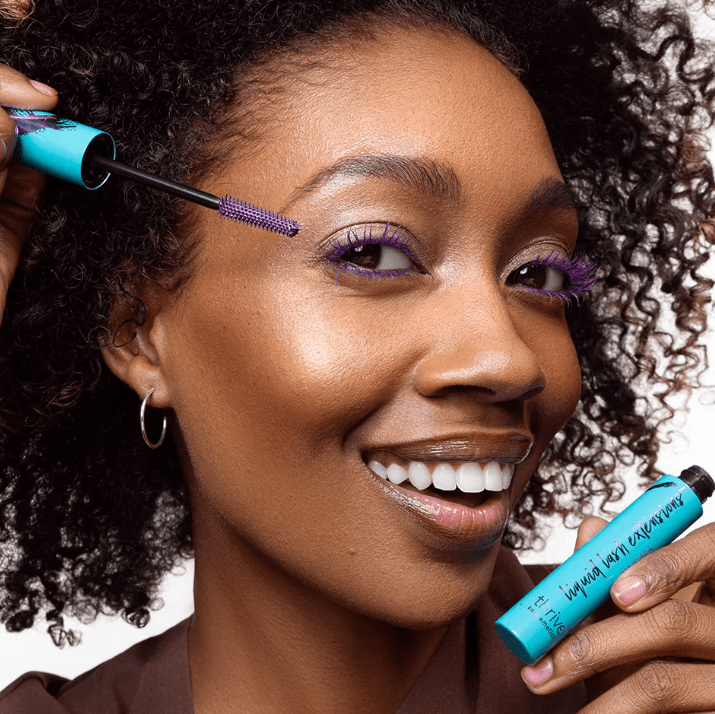
Bodnar: I’m really excited about color having a comeback. As a glam girl myself I love all different types of glam, but we have three new mascaras that we’re launching that have been customer-driven but are also very much on trend. The data is speaking, so we have a pink, purple and green mascara launching. I don’t think that would have been commercially successful two years ago.
I also think consumers are going to continue to demand more transparency around ingredients and wanting their makeup to do more for them, so I’m very excited about that.




